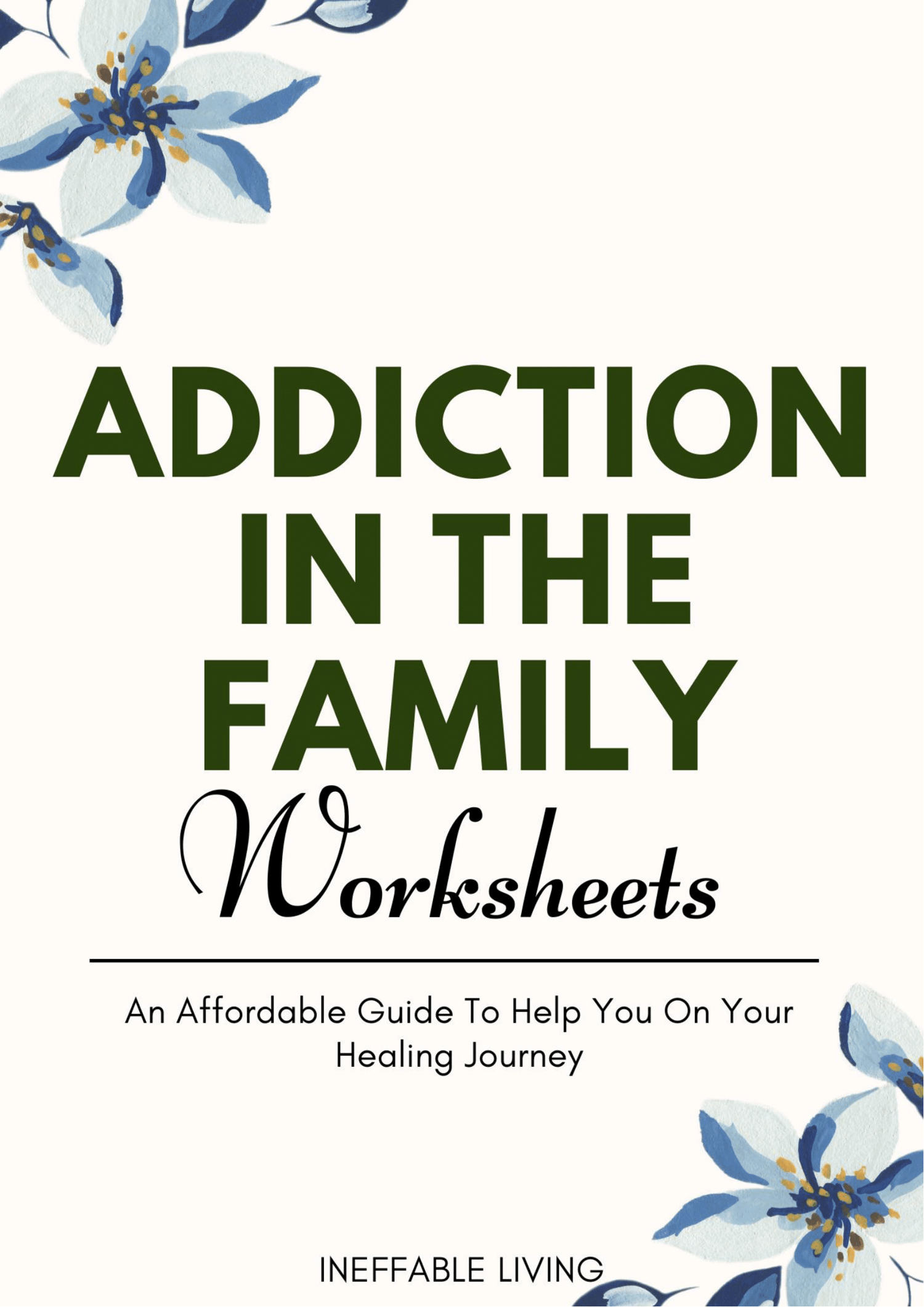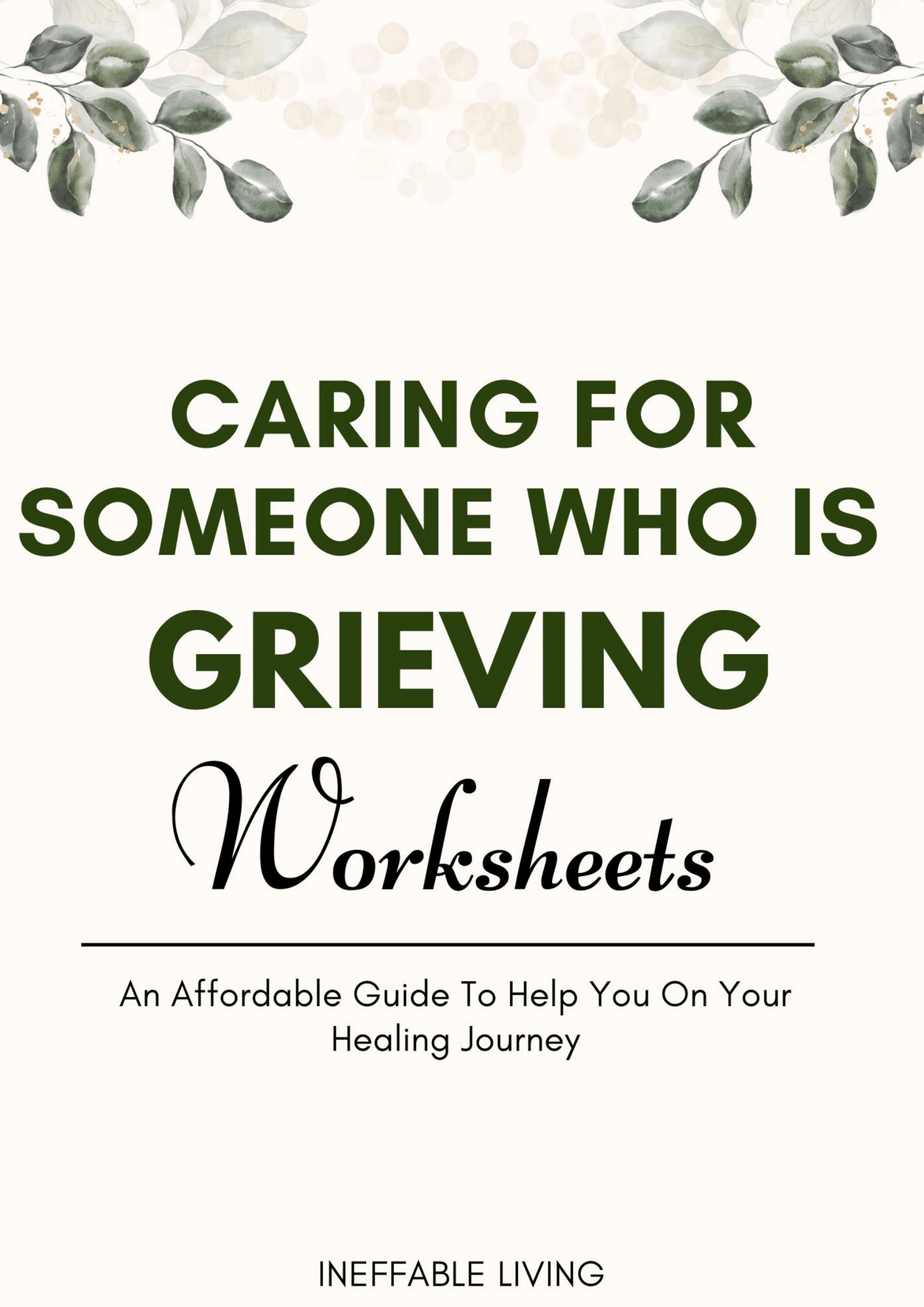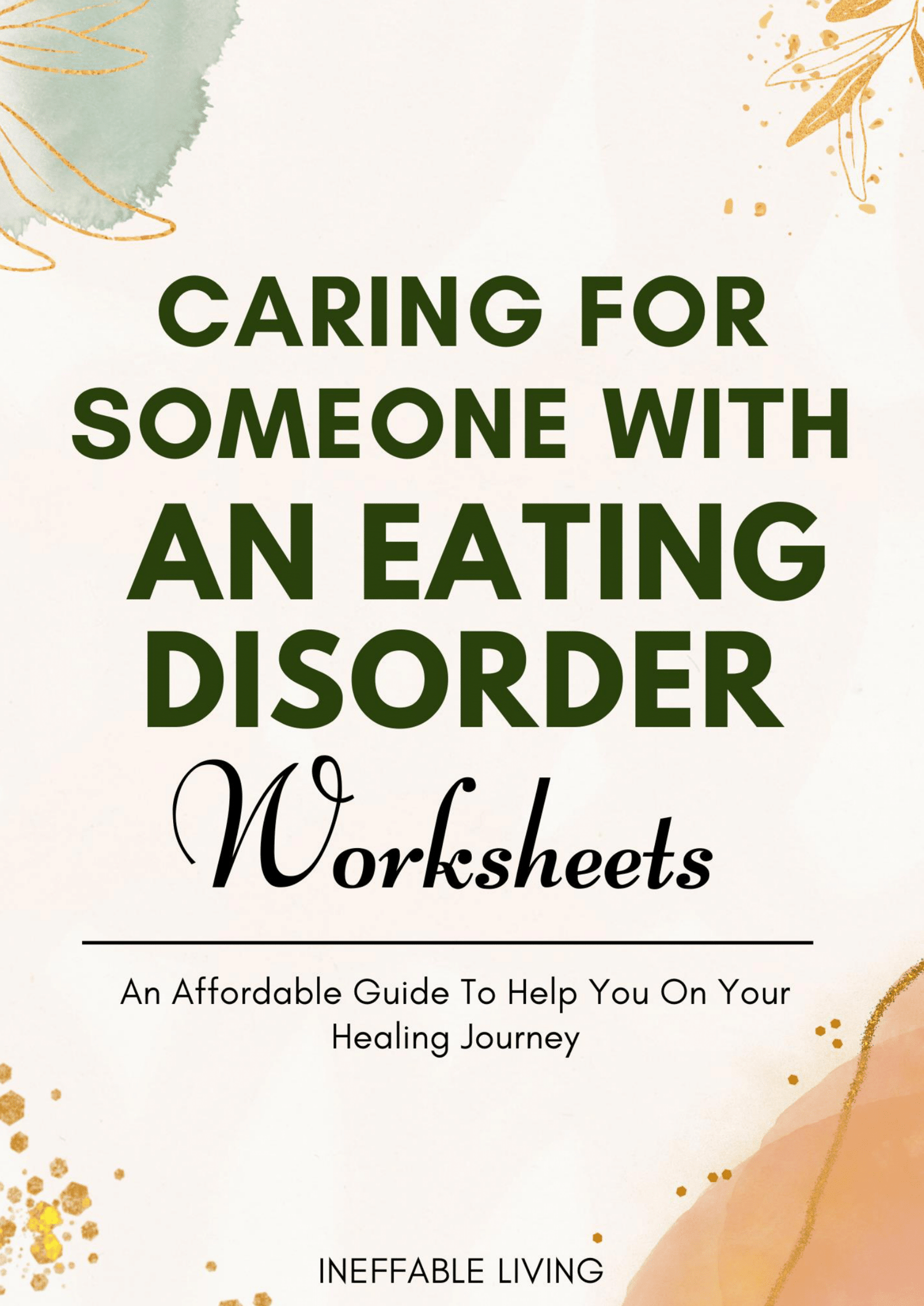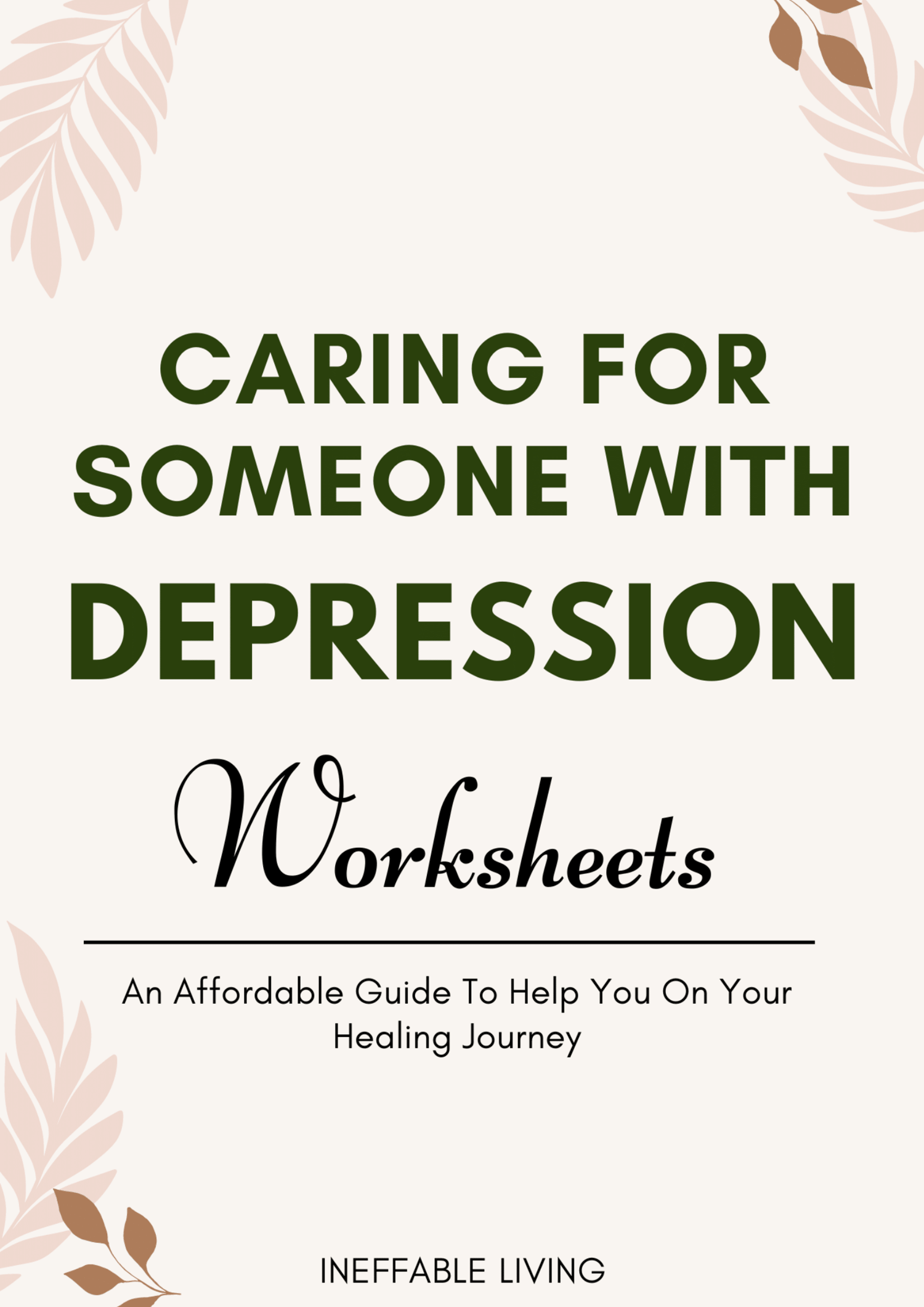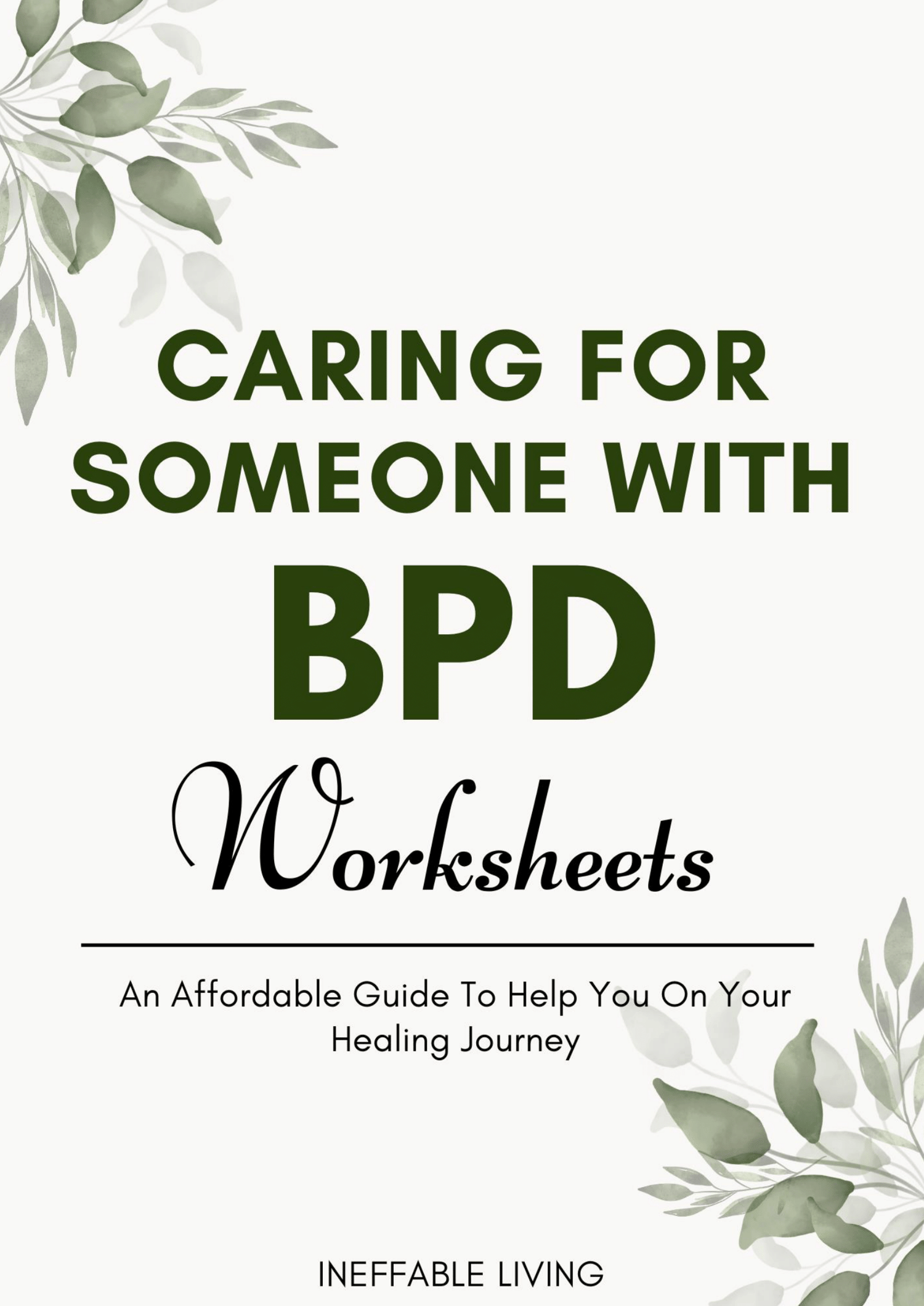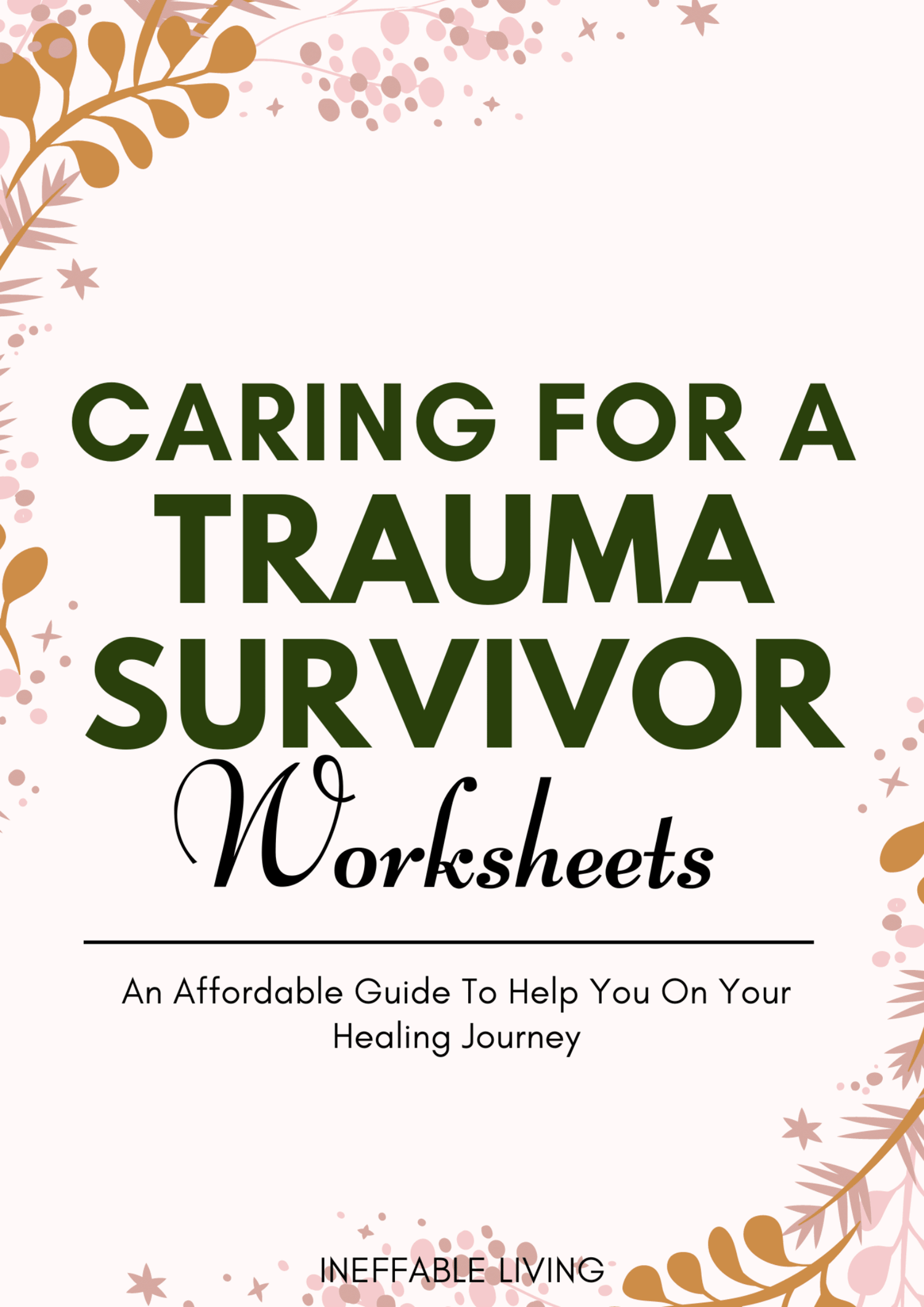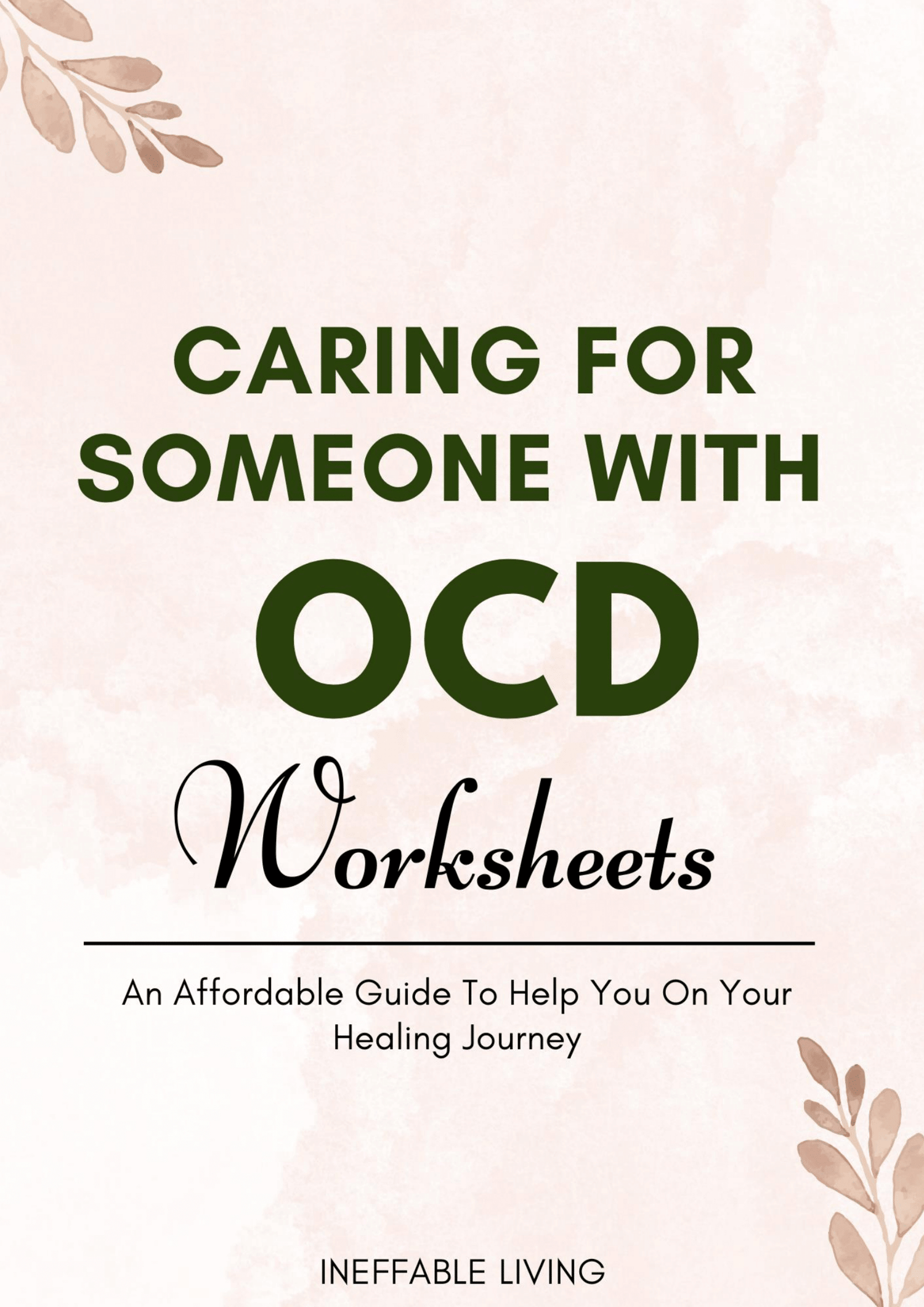Caring for someone you love — whether it’s a parent, partner, child, or friend — can be one of the most meaningful acts of love. But it can also be one of the most emotionally and physically draining.
If you’re feeling worn out, overwhelmed, or like you’ve lost yourself in the process, you’re not alone. Caregiver burnout is real, and your emotional health matters, too.
That’s where these caregiver support worksheets come in — to help you process, set boundaries, and reclaim your well-being without guilt.
- The Hidden Emotional Weight of Caregiving
- Why Caregivers Need Mental Health Support
- 1. Addiction in the Family Worksheets
- 2. Caring for Someone Who is Grieving Worksheets
- 3. Caring for Someone with an Eating Disorder Worksheets
- 4. Caring for Someone with Depression Worksheets
- 5. Caring for Someone with BPD Worksheets (Borderline Personality Disorder)
- 6. Caring for a Trauma Survivor Worksheets
- 7. Caring for Someone with OCD Worksheets
- 8. Caring for a Loved One with Dementia or Alzheimer’s Worksheets
- These Worksheets Are For You If…
- You’re Allowed to Need Support, Too
The Hidden Emotional Weight of Caregiving
Behind every task, appointment, and check-in lies an invisible load:
- The guilt of never feeling like you’re doing enough
- The grief of watching someone decline
- The anger and resentment you’re afraid to admit
- The exhaustion of being “on” all the time
- The loneliness of carrying it all silently
It’s a level of emotional labor few people understand — and it can quietly wear you down if you don’t have a space to unload.
Why Caregivers Need Mental Health Support
Caregivers often prioritize others’ needs so much that their own feelings go unspoken. But ignoring your emotions doesn’t make them disappear — it just buries them deeper.
These worksheets give you a safe space to:
- Reflect on how caregiving is impacting you
- Set healthy boundaries without guilt
- Identify signs of burnout early
- Reconnect with your own needs, goals, and identity
- Practice self-compassion, even on the hardest days
You deserve care, too — not just from others, but from yourself.
1. Addiction in the Family Worksheets
Navigate the emotional chaos of loving someone with addiction through healthy boundaries, communication tools, and self-preservation strategies.
2. Caring for Someone Who is Grieving Worksheets
Support a grieving loved one with empathy while also honoring your own emotional needs during their healing journey.
3. Caring for Someone with an Eating Disorder Worksheets
Offer non-triggering support, reduce conflict, and create a safe space for healing — without losing yourself in the process.
4. Caring for Someone with Depression Worksheets
(+25 Pages of exercises and prompts)
Understand depressive symptoms, avoid caregiver burnout, and learn how to help without feeling helpless.
5. Caring for Someone with BPD Worksheets (Borderline Personality Disorder)
Manage emotional intensity, protect your boundaries, and stay grounded while supporting a loved one with Borderline Personality Disorder.
6. Caring for a Trauma Survivor Worksheets
Support healing without retraumatizing — learn what helps, what harms, and how to stay emotionally safe while being present.
7. Caring for Someone with OCD Worksheets
Understand obsessions and compulsions, avoid enabling, and offer support without feeding the cycle of anxiety.
8. Caring for a Loved One with Dementia or Alzheimer’s Worksheets
Balance patience, grief, and practical care with worksheets that help you stay connected, centered, and supported.
These Worksheets Are For You If…
- You feel emotionally or physically exhausted
- You’re caring for someone with chronic illness, disability, dementia, or mental health issues
- You struggle to ask for help or take breaks
- You feel invisible, isolated, or unappreciated
- You want to keep caring, but not at the cost of your own well-being
You don’t need to wait until you break down to start taking care of yourself. Prevention is healing.
You’re Allowed to Need Support, Too
You are not selfish. You are not failing. You are doing something incredibly hard — and you deserve the same compassion you offer others.

Read Testimonials –> HERE
FAQs
Can I use the worksheets with my therapy clients?
Absolutely! The worksheets are meant for both, personal and professional use.
The worksheets are copyrighted so you can’t resell them or upload them publicly online. But you can share them with your clients.
Can I make changes to the files before handing them down to my clients?
Absolutely! You can convert your PDF files to word documents and make changes using free tools like pdf2doc.com.
How do I know if these worksheets are right for me?
These worksheets are perfect for anyone who needs an affordable, yet effective strategies to help them increase their self-awareness and work on their own issues – alone or with their therapist.
These worksheets are not a one-size-fits-all approach and are in no way meant to imply that change is as one-dimensional as a worksheet.
So choose the techniques and suggestions that apply to you and tailor the exercises in ways that will be helpful to you.
Can I use these worksheets on my own or should I seek professional guidance?
These worksheets are designed to be helpful on their own. However, seeking professional guidance from a mental health professional can increase their effectiveness.
How do I use mental health worksheets effectively?
1. Set aside dedicated time: Find a quiet and comfortable space where you can focus on yourself without distractions. Treat this as valuable self-care time, just like you would for any other important appointment.
2. Choose the right worksheet: There are numerous worksheets available, each offering unique exercises and prompts. Consider your specific needs and goals. Are you looking to enhance self-awareness, manage stress, or improve your relationships? Select a worksheet that aligns with your current focus.
3. Read instructions carefully: Take a moment to fully understand the purpose and instructions of the worksheet. Clarify any questions you may have before proceeding.
4. Engage in self-reflection: Set pen to paper and let your thoughts flow. Don’t worry about perfection or judgment – this is your private space to express yourself authentically. Be honest with yourself and explore your emotions, thoughts, and experiences without restraint.
5. Reflect on your insights: After completing the worksheet, take some time to reflect on what you have learned about yourself. Consider any patterns or triggers that impact your mental well-being. Identify areas where you can implement positive changes or coping strategies.
6. Incorporate your insights into daily life: The true value of mental health worksheets lies in applying your newfound awareness and insights to your everyday life. Consider how you can integrate these insights into your relationships, self-care routines, and overall well-being.
When should I see a therapist?
These worksheets are designed to help you better understand yourself, your distress, and your difficulties.
You can use it in conjunction with therapy or as a stand-alone guide to manage your distress.
These worksheets can be considered a low-intensity intervention. They’re perfect for those who are struggling with mild to moderate issues.
In mental health, mild to moderate symptoms are those that are severe enough to be distressing to you, but moderate enough that you can still manage most of your daily activities.
If you feel very overwhelmed by any of the exercises in these worksheets, this might be a sign that your symptoms are too severe for you to do the work by yourself.
A therapist will help you at your own pace and provide support and encouragement throughout the process.
Do you have more questions? Check this page –> FAQs
